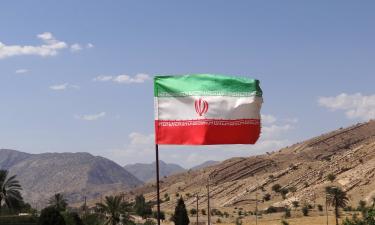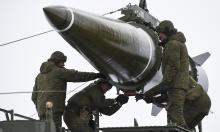Yukos Suggests Grand Project, Foreign Investors Turn Away
Oil company Yukos suggested the construction of a huge oil terminal in Russia
Sergey Bogdanchikov, the president of the Russian state oil company Rosneft, continues his offensive against Russian oil oligarchs. Rosneft offered its own schedule for the development of pipeline systems in the North-West of Russia. The company also worked out a plan to supply raw materials to the oil terminal in the city of Murmansk. Russia’s largest oil companies Yukos, LUKOIL, Sibneft, and others agreed upon the construction of such a terminal on the threshold of the Russian-American oil summit in Houston.
Sergey Bogdanchikov suggested an alternative project. He believes that it would be more profitable to increase the capacity of the Baltic pipeline system rather than to build a separate pipeline to the city of Murmansk. The need to erect a large oil terminal on the Kola peninsula was announced in the summer of the current year. It was done by Mikhail Khodorkovsky, the head of the oil company Yukos. As it is well known, Yukos is the first Russian oil company, which started selling its oil directly to the States. However, there were no ports in Russia that could work with large oil tankers, the tonnage of which exceeded the level of 130 thousand tons. That is why, Yukos had to load its two supertankers in the Croatian Omisalj terminal, which made the cost of the operation a lot more expensive.
Mikhail Khodorkovsky’s suggestion was quickly evaluated by the heads of the Russian oil companies. Vagit Alekperov, the president of the company LUKOIL, supported Yukos’s initiative at once. Later, the alliance of Yukos and LUKOIL was extended with Sibneft and Tyumen Oil Company (TNK). Vagit Alekperov presented the project on the construction of a large oil terminal at the Russian-American summit in Houston. Yet, when Russian oil oligarchs told the Americans, how much it would take for such an ambitious project to become real, foreign investors lost their interest in turning Murmansk into a huge oil port. The maximum, what Yukos, LUKOIL and Sibneft managed to gain from the summit, was the promise from the American Eximbank to assign them $100 million to purchase American equipment. It goes without saying that the mentioned companies do not have the money to build both a pipeline and a terminal. Analysts hope that the given project might probably interest other Russian companies. It is rumored that the company Surgutneftegaz evinced a certain interest in it. However, there is no other Russian oligarch, who would wish to support the group. It deems that oligarchs hoped to convince the government in the need to fund the construction. In addition to that, the Russian government welcomed the fact that Russian oil companies entered the American oil market. On the other hand, the so-called Murmansk project is a challenge to the state monopoly in the field of oil transportation. Oligarchs are actually willing to build a branch of a pipeline that would be three thousand kilometers long. They want to make this branch independent on the state company Transneft. The total cost of the project varies between 3.4 – 4.5 billion dollars, depending on the route of the pipeline. There is absolutely no point for the state to spend this money for oligarchs’ favor only.
The company Rosneft has not had an instant reaction to this project. However, Sergey Bogdanchikov made up his mind to gain revenge with oligarchs after the debacle with the privatization of the company Slavneft. Bogdanchikov suggested to correct the project for the sake of state interests. For the time being, the Baltic pipeline system is capable of transporting up to twelve million tons of oil a year. However, the modernization of the system will make it possible to achieve the level of 30 million tons. That is why, Sergey Bogdanchikov suggested oligarchs should not spend their money to no purpose, but to invest it in the modernization of state capacities.
Experts consider this demarche as the beginning of the resolute offensive of the state part of the Russian oil complex against the so-called Yeltsin era oligarchs. State structures have already struck several serious blows on the perspectives of Russia's largest oil companies, having complicated their activities. Moreover, it became clear that the state experiences a lack of money all the time, officials have their trump cards anyway. A hidden political motive (elections are coming) can be clearly seen in this situation. The board of directors of the company Rosneft includes such important figures as Minister for Economic Development and Trade German Gref, chief of the economic department of the presidential administration Anton Danilov-Danilyan, deputy Energy Minister Ivan Matlashov. All of these officials might become members of Vladimir Putin’s so-called St.Petersburg team of officials (most important positions are presumably taken by the officials, who came from St.Petersburg). In this connection, there can be hardly any doubts regarding the administrative resource that they have at their disposal. Who doubts that this resource will be used some other way, but to reelect the incumbent president?
It’s totally clear that the construction of the independent oil pipeline to the city of Murmanks on the threshold of the presidential election testifies to a certain change of the correlation of forces between the new and the old political elite of Russia. The St.Petersburg team will not let go the state control over the export of oil. The suggestion to fund the modernization of the Baltic pipeline system on the part of the state monopolist is virtually an unambiguous order for everyone to calm down and to stick to their own businesses. A correct decision in this situation is extremely important for all future perspectives of Russian oligarchs, though.
Dmitry Slobodanuk
PRAVDA.Ru
Translated by Dmitry Sudakov
Subscribe to Pravda.Ru Telegram channel, Facebook, RSS!





